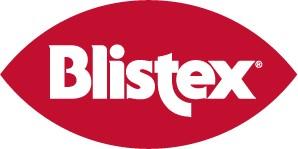
What to do when you feel a cold sore coming on
Peer reviewed by Dr Sarah Jarvis MBE, FRCGPLast updated by Milly EvansLast updated 21 Nov 2019
Meets Patient’s editorial guidelines
- DownloadDownload
- Share
- Language
- Discussion
Cold sores are more common than you might think. In Britain, about 7 in 10 people have caught one of the viruses which causes them. So if you're starting to feel the prickle of a new cold sore forming, you're not alone.
Sponsored
Blistex
Supported by Blistex the experts in lip care and lip health since 1947. Patient.info retains sole control of the content.

In this article:
Most of us have had one of the herpes simplex viruses which cause them - yet for something so common, cold sores aren't something we tend to talk about.
Whilst having a cold sore is nothing to be embarrassed about, it's understandable to want to start fighting a cold sore as soon as you notice it, to minimise visibility and pain. The earlier you start treating an outbreak, the more effective the treatment will be.
Continue reading below
Signs and symptoms
If you've never had a cold sore before, you should be able to notice some tell-tale signs that you've got one coming on, says Dr Sweta Rai of the British Association of Dermatologists.
"You may be able to tell when a cold sore is coming on if the area of skin is uncomfortable, tingling or painful," she explains. "It may be hard to know what is happening during a first infection but in future episodes it is easier to spot the first signs of the virus becoming active."
Being aware of and avoiding key triggers is your best bet to prevent cold sores forming in the first place. "If you suffer from recurrent attacks of herpes simplex, you may be able to avoid certain things that may trigger an attack," says Rai.
"These may include avoiding getting stressed or run down, keeping healthy and getting enough sleep, avoiding sunlight on the affected area and sunbeds if you find they trigger outbreaks, and using UV protection."
However, if you're already noticing the signs, start treatment as soon as possible to minimise your symptoms.
Starting treatment
Back to contentsCold sores are common, and generally you don't need to see a GP about them unless they become persistent or are causing serious discomfort. But there are certain things you can do at home or buy over the counter to reduce their size and any pain.
Antiviral creams (your pharmacist can discuss the options) prevent the virus from multiplying and can reduce the severity of your symptoms or help the cold sore heal more quickly. While these used to be available only on prescription, the same medication is now available from pharmacies. But you need to act quickly.
"The general rule in treating herpes simplex is that all treatments work best if they start as soon as possible," says Rai. As soon as you notice redness or tingling, start using treatments; they're less likely to be effective once blisters appear.
To reduce redness and swelling, keep the affected area cool and hydrated, she suggests. "Measures such as a cool wet compress, applying moisturising cream, washing the area gently and applying over-the-counter antiviral creams may help treat cold sores."
Avoid eating spicy or acidic foods whilst you have a cold sore as this may exacerbate symptoms. Instead, stick to softer, cooler foods and drink plenty of water.
Speak with your pharmacist about treatments they can sell you over the counter to reduce pain and speed up healing. These might include painkillers, mild anaesthetic creams to numb the area and antiviral creams to fight the herpes simplex virus. There are also cold sore patches which can provide protection to the cold sore whilst it is healing.
If your cold sores are becoming a persistent problem, there are also treatments which can be prescribed by your doctor to reduce symptoms - and to prevent future attacks.
"Antiviral drugs may be prescribed by your doctor if your cold sores are very large, painful or keep coming back. This can help to lessen the severity of the attack and/or shorten it. Be sure to follow the recommended dose as these treatments often need to be taken frequently," says Rai.
For cold sores which are exceptionally troublesome or frequent, whether during a particular season or throughout the year, your doctor is occasionally able to offer long-term preventative treatment.
"If you have multiple outbreaks a year you may want to discuss prophylactic (preventative) antiviral treatment with your doctor. This means using an oral antiviral agent at a reduced dose throughout the year for prevention of cold sores," explains Rai.
Continue reading below
At-home remedies
Back to contentsIt's tempting to look for a quick fix for your cold sores. But lots of the DIY remedies you might find online could actually do your skin more harm than good.
"There is a wide range of home remedies for cold sores," says Rai. "However, we do not recommend this approach as there is usually little evidence regarding the effectiveness of these treatments."
Some of the 'remedies' which come up when you do a quick online search include toothpaste and nail polish remover. "Some of the substances often recommended for use on the skin as part of these home remedies can actually damage the skin," confirms Rai. Not only are these not safe for use on the skin, but they will likely cause further irritation and pain, rather than speeding up your skin's recovery.
So the next time you feel the familiar tingle of a cold sore cropping up, leave the home remedies in the bathroom cupboard and head to the pharmacy for some tried and tested treatments.
Patient picks for Cold sores

Oral and dental care
Can cold weather trigger cold sores?
The bite of winter is definitely in the air. If you're someone who gets outbreaks of cold sores at this time of year, you might be wondering what the link is - and what you can do to tackle them.
by Milly Evans

Oral and dental care
Surprising facts everyone should know about cold sores
Lots of us are affected by cold sores, yet misconceptions about them are widespread. We separate fact from fiction and look at how to manage the symptoms, dispelling misunderstandings about this common virus.
by Amberley Davis
Continue reading below
Article history
The information on this page is peer reviewed by qualified clinicians.
21 Nov 2019 | Latest version

Ask, share, connect.
Browse discussions, ask questions, and share experiences across hundreds of health topics.

Feeling unwell?
Assess your symptoms online for free
Sign up to the Patient newsletter
Your weekly dose of clear, trustworthy health advice - written to help you feel informed, confident and in control.
By subscribing you accept our Privacy Policy. You can unsubscribe at any time. We never sell your data.